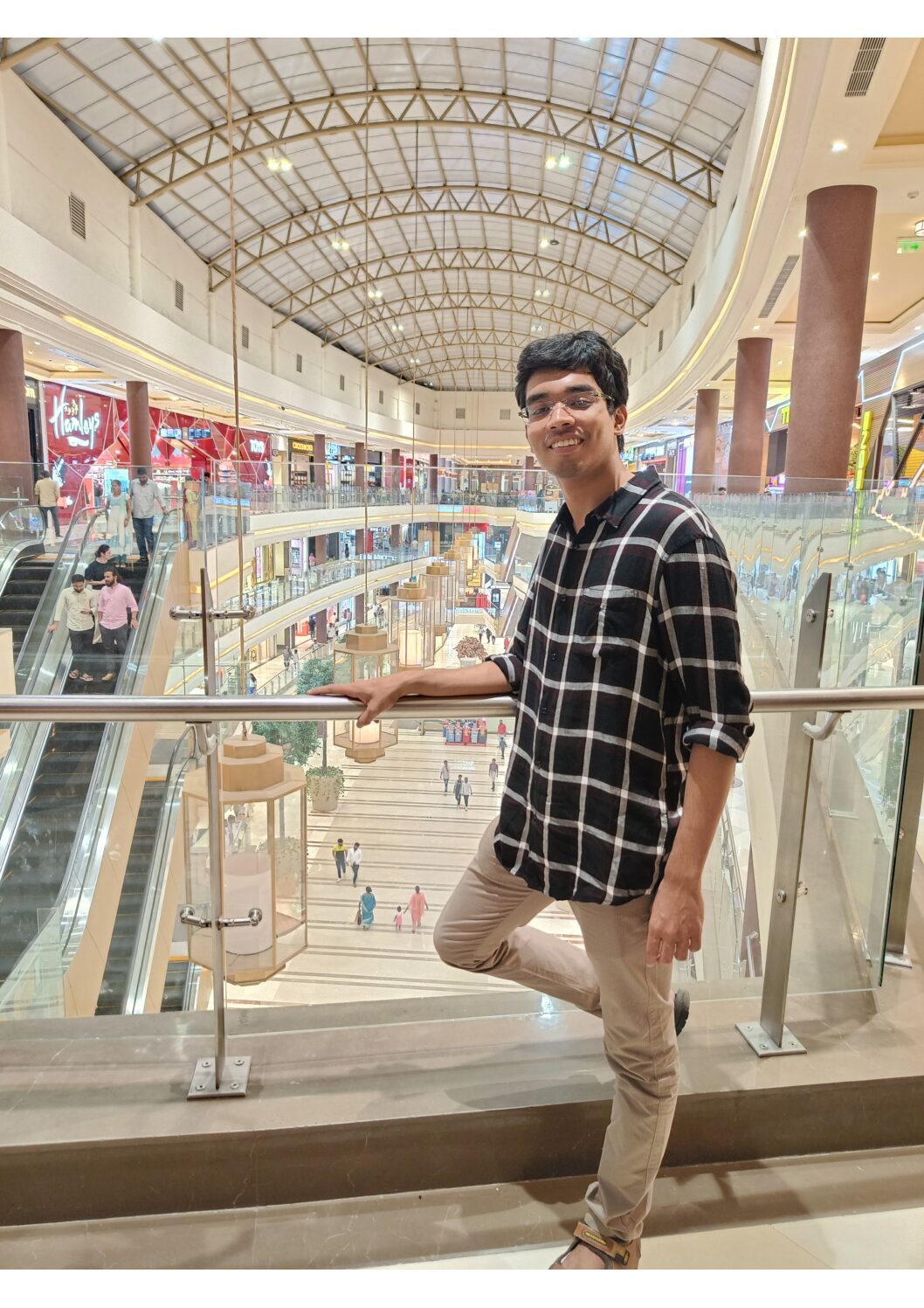On the occasion of Teachers’ Day every year, IIT Kanpur honors faculty members who have excelled in teaching by awarding them the Distinguished Teacher Award. This year it was conferred on Prof. Surajit Sinha (Dept. of Economic Sciences) and Prof. Rahul Varman (Dept. of IME).
Vox had the chance to interact with Prof. Sinha, learn about his journey from a student to a teacher. In this conversation, he candidly shares stories of his GRE application, his days as a young teacher with some suggestions for improving our academic system.
First and foremost sir, congratulations sir for receiving the Distinguished Teacher Award!
Thank you very much! In fact, I have received it because of you people. You guys give those scores – the Student Reaction Survey numbers. To be honest with you, I didn’t expect this at all. There are many other professors who teach very well, but I am happy that they recognized me, after 31 years of hard work.
31 years! That’s a huge period! Coming to the first question sir, kindly tell us about yourself, and your schooling and upbringing.
The earliest that I remember is the first school I went to. It was a missionary school, St. Thomas Church School in Howrah, on the other side of Ganga, and I went there till class 4rth. That was a beautiful school – these Christian schools were founded many years back, full of lush greenery and nice teachers, and also a bit formal – I had to wear a tie and stuff, at all times, every day. Then my father changed his job, and we moved to Calcutta. After that, the school I went to was a very local, newly established school. They were still in the establishment phase, hiring teachers, and functioned from a rented residential complex. We never paid any attention to studies at that time, me and my siblings.
But later, my father put me in a very successful school – South Point High School, in Calcutta. If all the branches of our school were combined, there were a total of about 10,000 students, in those days, I am talking about 1971. That was the first time that I experienced a good study environment. Those days they used to print the results of the board exams in the daily newspaper, and South Point used to dominate always. But unfortunately, the result of our batch was very weak. I don’t know what happened that year, some grave mistakes were made in checking the copies. I heard after the review that a person even got 200-250 marks more. My whole schooling was a mix of everything, in different proportions in different instances.
After that, I joined St. Xavier’s College in Calcutta, run by the European Christians. It was not that the teachers were good then, but the atmosphere – oh that was amazing! South Point I never liked, it was admired for their achievements, but St. Xavier’s I personally liked and got attached to. As usual, my interests in economics deepened during my late schooling, and then it continued through undergraduate education, and finally I went for masters. I was never willing to go for masters; I could have easily gotten a job with only a bachelor’s degree, and also my father was falling very ill slowly, so a job became a necessity. But my father insisted, so I joined the economics department at Calcutta University. The masters’ department was located very far away, so I had to take a bus. And at that time they were digging up for Calcutta Metro, so it was all very muddy; you can’t even imagine how it became during the rains! So it was a great big struggle. But that university took me to a different level. Most of the professors there had a foreign degree, in those days. So you can guess how good the department was.
My urge to earn as early as possible died down, and pursuing further studies became my main aim, and now I was stuck with economics. Now my father again motivated me, this time to go abroad. I wanted to stay in India, study here. Generally, the procedure is that you appear for GRE, get the scores for that, and prepare your CV, ask for financial assistance, and then the foreign universities consider you for admission. My father never wanted me to wait this much. Believe me or not, he started to write my whole CV in an inland letter, and that too without GRE! And even got admission at McMaster University in Canada! (Laughs). There I gained a lot, enjoyed a lot, and finally got settled for economics.


What changes do you observe from the time you joined the institute, and now, mostly in your teaching field?
I’d talk about the academic changes majorly. So when I joined, there were fewer students. That way, the class sizes were small, I’d see every person, remember their faces, there would be constant interaction with everyone. Nowadays, I am kind of lost; I don’t know who is sitting in this class, can’t recognize their faces either. Both the physical and psychological distance has become too large. The students are lost too, I guess. In the starting 10 years of my teaching, I had daily interaction with students, and they used to give me hell! The quality and quantity of doubts that they had for me, it is nowhere to the doubts that I get nowadays. Back then, I was a teacher teaching the course, but now they have got used to an instructor instructing for the course. This is not how education works. I have become more like a ‘neta’ who comes on stage just for his campaigning, and there’s no proper communication from the listener’s side.
What prompted you to get into teaching, and what were the primary difficulties that you faced in your early years in teaching and in living here?
This academic profession has the permanent feature of teaching associated with it. Research and teaching go hand-in-hand. So I never thought of teaching to earn, but it just came in my way and I worked my way out. In my early years, power supply was a huge problem. Power would go off in the midst of a class, and in the summers, it became very difficult. No A/Cs, no generator; climate change hadn’t occurred yet. (Laughs)
But more importantly, imagine what would happen in the laboratories – experiments which were running continuously for 10-12 hours, would totally be wasted. Finally, in the mid-90s, a direct line from the Panki powerplant was constructed which greatly reduced the power problem. Also, the library was a little insufficient. Indian author books were easily available, but the foreign books came in dollars, hence they bought only 1 or 2 copies. Still, the students managed through photocopies.
The major problem occurred in daily activities. At that time, there were little-to-none infrastructure facilities, one of which was the power issue. Adding to that was the problem with the Institute Works Department (IWD). it used to be a nightmare for us: we had to lodge a written complaint, there was no internet, and so it remained at the table of the govt. officers for many days. If your tap is leaking, it will continue to do so until you remind them thrice. And there was no option for that: there were no private service providers so far from the city. In those days we felt like we were living on an island. Once, the senior most person of the IWD, the Superintendent Engineer (‘bada baabu’ as we used to call him) was called in front of the frustrated faculty members. It was so fierce, I literally thought they would beat up the bada baabu! (Laughs)
This has improved unbelievably now. You lodge a complaint on Pingala and immediately under 2-3 hours someone would be at your house fixing your problems. I can’t even imagine the offline IWD now. It was such a mess!
As a conclusion, what is the message that you want to give to the current student community at IITK?
They should always be respectful of the studies and the teachers. If they have any problem, they should be very open about it, to whomever they think might be good to listen to them. Always keep a door open for the second opinion of an issue – if you think you know everything, you won’t be able to gain anything.
This is all I have to say, because we are reaching a point where the adults are making huge mistakes, and the students have to be vigilant but have to find ways to deal with it, because they are the ones who’ll be heading the country and make it progress. There was a time when you could blindly accept what your father and grandfather had to say, and it would probably turn out to be the best for you, but now the society is evolving very quickly due to technological changes.
So the students have to take responsibility for themselves, and also somehow communicate to the other side. They may not listen, because there is so much ego problem. “Who are they to correct us?” they might say. But young minds are very intelligent, I know how dull I have become now. But you have to be open to ideas, open to debates. This is all I have to say, this sums it up.
Credits: Devansh Parmar, Mrigya Gupta, Pulkit Deshmukh








































